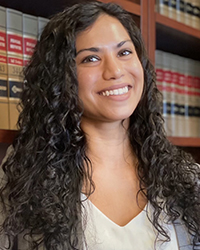Natasha Sharma

You’re involved in leadership for a lot of student organizations; how do you find the time?
One thing I’ve learned as I’ve gotten older is that life gets busy and responsibilities pile up, but that I’m never too busy for the people or the organizations or the responsibilities that really mean something to me and spark something in my heart. I know with those things that I can’t drop the ball and let them go. If your heart is connected to something, you always find the energy to make something happen.
You’re a major part of the leadership teams for APALSA and MELSA this year. What are your goals for those organizations?
Without inclusivity, it is impossible to have diversity. When it comes to affinity groups, sometimes we tend to think of those as only for Asian students or Middle Eastern students; however, I want to make sure that our outreach is for everyone regardless of identity and that we bring people of all kinds together. This doesn’t mean that identity is not important, but identity is best realized when it is expansively inclusive and diverse.
What has been your favorite class at the law school?
Federal Indian Law. Not only is Professor Rolnick a brilliant mind and incredible person, but the cases in Federal Indian Law bring you back to the roots of the nation’s founding and shows the atrocities that have been perpetuated against Native Americans from the beginning of the country. It’s incredibly humbling and crucial to learn where the shortcomings in the law have allowed the rights of Native Americans to be stepped on, and Professor Rolnick’s class can empower students and future legislators to be equipped to advocate for legislation that supports tribal sovereignty.